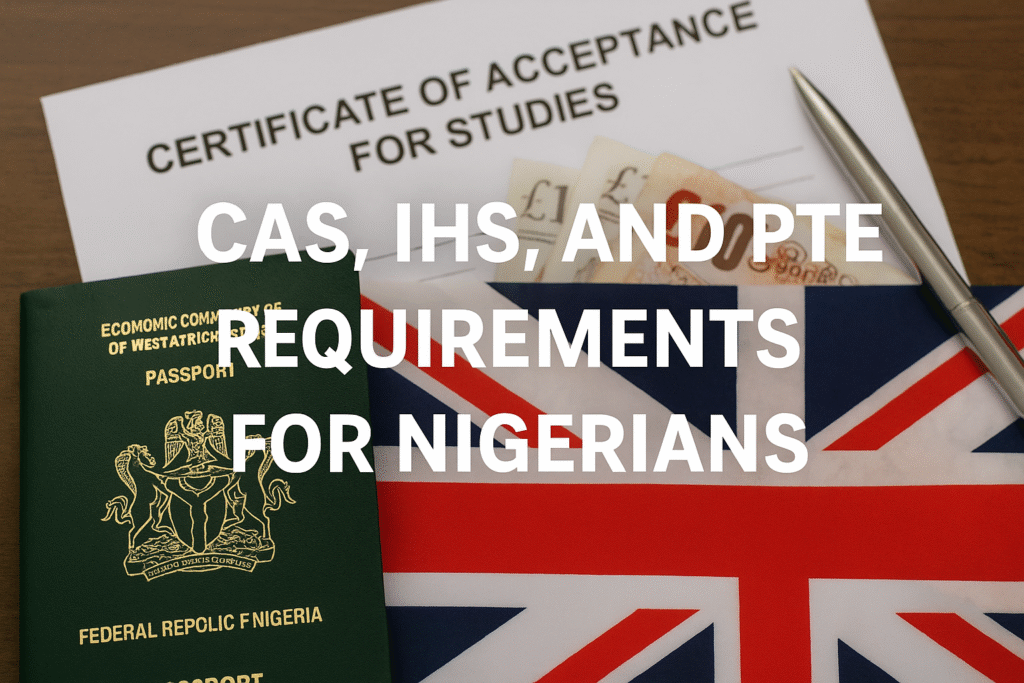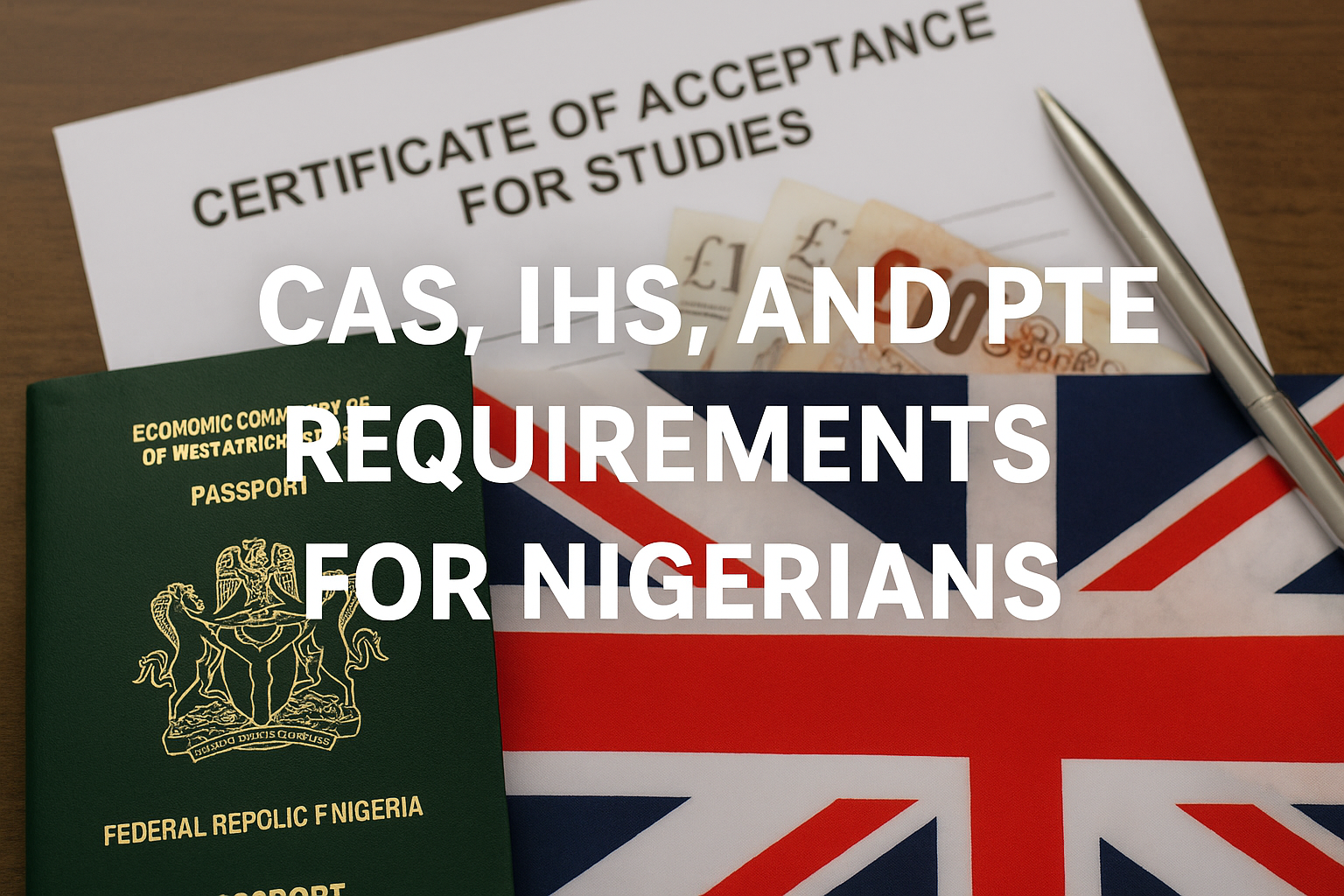Learn the exact 2025 UKVI financial requirements for Nigerian students — including the proof of funds formula (£1,334/month London, £1,023/month outside London), CAS documentation, IHS fee, and the 28-day rule.

Introduction
If you’re a Nigerian student planning to study in the UK in 2025, one of the most confusing — yet crucial — parts of your visa application is the proof of funds.
UK Visas and Immigration (UKVI) uses this requirement to confirm that you can pay your tuition, support your living costs, and cover health expenses without public assistance.
In this guide, you’ll learn the exact UKVI financial formula, the 28-day rule, how to calculate funds in Naira using the official exchange rate, and what documents to prepare if the money is held in your parent’s account.
By the end, you’ll have a precise, step-by-step understanding of how to meet the proof of funds for UK Student Visa Nigeria requirement — without costly mistakes or last-minute rejections.
The UKVI Financial Formula: Breaking Down Your Funds Requirement
UKVI assesses your financial readiness using three components:
- Tuition fee balance (after any payments shown on your CAS).
- Maintenance funds (living costs for up to 9 months).
- Immigration Health Surcharge (IHS) and Visa fee (mandatory upfront payments).
Let’s break them down.
Component 1: Tuition Fee Balance & CAS
Your CAS (Confirmation of Acceptance for Studies) is the official document issued by your university confirming your offer and any tuition deposits you’ve already paid.
The CAS helps UKVI verify how much tuition you still need to show proof for.
Example:
If your total tuition fee is £18,000 and you’ve paid £8,000, your remaining £10,000 must appear in your financial documents.
Your CAS will include:
- The total tuition fee.
- The amount already paid.
- The course start date and duration.
- The CAS number (which links your visa application to your admission).
Tip: Always double-check that your CAS reflects every payment you’ve made — even deposits — to reduce the amount of funds you need to show.
Component 2: Mandatory Maintenance Funds (The London vs. Non-London Rule)
UKVI sets two distinct living cost standards depending on where you’ll study:
| Location | Monthly Rate (2025) | Maximum Months Considered | Total Required |
|---|---|---|---|
| London | £1,334 per month | 9 months | £12,006 |
| Outside London | £1,023 per month | 9 months | £9,207 |
London includes all boroughs under the City of London and the 32 Greater London boroughs.
Example Calculation:
- Tuition Balance: £10,000
- Maintenance (London): £12,006
- Total Proof of Funds = £22,006
Note: If your course duration is less than 9 months, calculate your maintenance funds based on the actual course length.
Navigating the 28-Day Rule with Nigerian Bank Statements
This is where most Nigerian applicants get refused. The UKVI has zero tolerance for non-compliance with the 28-day rule.
What Is the 28-Day Rule?
Your funds must remain continuously in your account (or your sponsor’s account) for at least 28 consecutive days before the date of your visa application.
- The closing balance date must not be more than 31 days old on the day you submit your online visa form.
- A “last-minute” deposit or transfer made within the 28-day period will invalidate the proof — even if the total amount is correct.
Example:
If you plan to apply on April 1, 2025, your funds must have been held from March 4, 2025, back to February 5, 2025 (28 consecutive days minimum).
Accepted Sources of Funds
- Personal Account:
- Must be in your name.
- Must show the full required balance.
- Parent/Guardian Account:
- Common for Nigerian students.
- You must submit:
- Your birth certificate (to prove the relationship).
- A signed consent letter from the account holder allowing use of the funds for your study.
- The account holder’s bank statement showing the funds.
- Official Financial Sponsor (e.g., Government, Scholarship):
- Must provide a sponsorship letter on official letterhead.
- The letter must clearly state:
- Duration of sponsorship.
- Exact amount covered (tuition, living, or both).
- The name of the sponsoring organization.
Warning:
Using borrowed funds, fake accounts, or lump-sum transfers just before applying will almost always result in refusal.
UKVI caseworkers are trained to detect “funds cycling” or abnormal deposits.
Non-Negotiable Upfront Costs: IHS and Visa Fee
In addition to your proof of funds, two separate costs must be paid before submitting your visa application.
1. Immigration Health Surcharge (IHS)
The IHS allows you to access the UK’s National Health Service (NHS) while studying.
- Current rate: £776 per year of study (as of 2025).
- Example: For a 1-year Master’s = £776; 2 years = £1,552.
You pay this online during your visa application process.
2. Visa Application Fee
- Student Route (Tier 4) application fee: £490.
- Paid online via the UK government visa portal.
Tip: These fees are separate from your maintenance and tuition funds. Don’t include them in your proof of funds calculations.
Expert Warning: Common Mistakes Nigerian Applicants Make
Drawing from years of consulting experience with Nigerian students applying for UK study visas, these are the most common financial pitfalls that lead to refusal:
| Mistake | Result |
|---|---|
| Submitting a bank statement showing funds held for less than 28 days | Automatic refusal |
| Using a borrowed account balance (lump-sum deposit close to application) | Refusal for “non-genuine funds” |
| Presenting statements older than 31 days | Proof invalid |
| Using non-Nigerian bank accounts without international recognition | Often rejected unless traceable |
| Failing to attach birth certificate or consent letter (when using parent’s funds) | Refusal due to incomplete documentation |
| Relying on black-market exchange rates for conversion | Discrepancy issues — use OANDA official rate |
Expert Tip:
Use OANDA’s official exchange rate calculator on the exact date of your visa application to convert Naira (₦) to Pounds (£).
UKVI only recognizes OANDA, not parallel market rates.
Financial Precision is Your Best Visa Strategy
Meeting the proof of funds for UK Student Visa Nigeria requirement isn’t about showing you have money — it’s about showing financial stability, documentation accuracy, and consistency.
Follow these three principles:
Keep your funds in place for at least 28 days.
Use only officially verifiable sources (your account, parents, or sponsor).
Always use the OANDA rate when converting Naira to Pounds.
Next Step: Use the official UKVI maintenance calculator to finalize your total requirement — and get your documentation ready at least one month before you apply.
Your financial precision is your ticket to a smooth visa approval.
